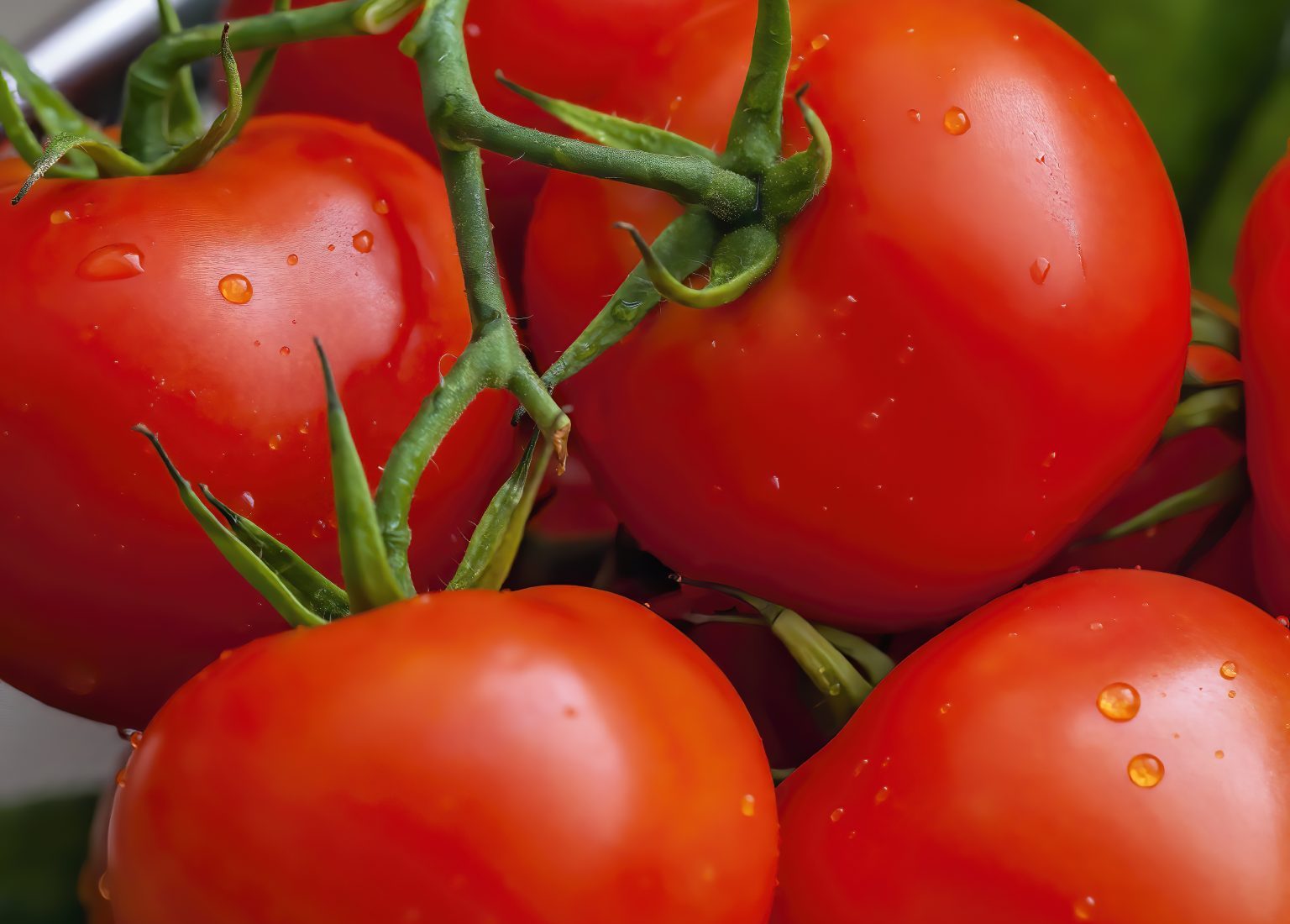Lawn & Garden

Tomato is the most popular vegetable in the home garden and commercial vegetable operations in Alabama. During the hot weather of summer, many concerned tomato growers see flowers on their tomato plants dry up and fall off without setting any fruit.
If the tomato plants are otherwise healthy, have sufficient water and fertilizer, good insect, pest, and disease control, and proper soil pH (6.5), your plants might be suffering from a condition known as blossom drop. This condition is unrelated to any nutritional disorder or disease or insect damage. It is related to weather conditions, particularly air temperature.
Tomatoes are a warm-weather crop; however, their flowers are sensitive to high air temperatures. When day temperatures exceed 85 degrees F and night temperatures exceed 72 degrees F, tomato flowers often abort. Another important factor linked to temperature is the length of exposure. The longer the plants are exposed to high air temperatures, the longer the condition will last and the more serious the effect on flowering. Short exposures, such as a week or less, should not cause much of a problem. For some varieties, night temperatures alone (above 72 degrees F) can be detrimental to flowering, even if day temperatures remain below 85 degrees F.
Heritage and heirloom varieties tend to be more sensitive to the conditions that induce blossom drop than modern varieties. Commercial growers in the southeastern United States have suffered from this problem for many years until the advent of heat-set tomato varieties in the 1990s. Heat-set varieties were bred to tolerate the high day and night temperatures expected in the summer and early fall. Many of these heat-set varieties set fruit well even under poor growing conditions from other external stresses such as extended cool and rainy periods. Therefore, selecting a tomato variety resistant to high air temperature may help the crop to fruit.
Keep plants healthy, well watered, and adequately fertilized to minimize damage caused by high air temperature. Control any pest problems that would stress the plant and worsen the condition. Once temperatures become more favorable, the plants will produce flowers and set fruit.
For the next year, try growing a heat-set variety. Many seed catalogs carry a wide range of these tomatoes. Read the descriptions carefully, looking for phrases such as heat-set, hot-set, or heat-tolerant. These varieties often have references to heat tolerance in their names, such as ‘Solar Fire.’ Other heat-set varieties such as ‘Bella Rosa,’ ‘Phoenix,’ ‘Red Bounty,’ and ‘Tribute’ have performed well in Alabama even during extended periods of hot weather and have become a mainstay for many commercial tomato growers.
Tips and Other Factors
- If you want to grow your favorite heirloom that does not do well in the summer heat, plant it soon after the last frost in the early spring.
- For mid to late-season production, plant heat-tolerant varieties to ensure that you have fruit.
- Support healthy plants by managing pests— scout daily.
- Avoid overwatering your tomatoes. Tomatoes need about 1 to 1.5 inches of water weekly. Insufficient watering or drought stress can cause blossoms to abort.
- Avoid overfertilizing. Too much nitrogen fertilizer can cause excessive vegetative growth, resulting in blossom drop or delays in flower development.
Too much of any fertilizer can cause salt levels to increase around plants. These high salt levels can cause blossom drop and other plant problems. Get a soil test before you plant so you will know how much fertilizer to apply. For more information on soil testing, visit the Soil, Forage, and Water Testing Laboratory website. - Aside from the high temperatures discussed above, temperatures lower than 55 degrees F can inhibit fruit set.
- Ensure the plants get at least 6 hours of full sun every day.
 Andre da Silva, Extension Vegetable Specialist, Assistant Professor, Horticulture; Chip East, Regional Extension Agent, Horticulture; Joseph Kemble, Extension Vegetable Specialist, Professor, Horticulture; Edward Sikora, Extension Plant Pathologist, Professor, Entomology and Plant Pathology; and Kerry Smith, Administrator, Outreach Programs, Home Grounds, Gardens, and Home Pests, all with Auburn University
Andre da Silva, Extension Vegetable Specialist, Assistant Professor, Horticulture; Chip East, Regional Extension Agent, Horticulture; Joseph Kemble, Extension Vegetable Specialist, Professor, Horticulture; Edward Sikora, Extension Plant Pathologist, Professor, Entomology and Plant Pathology; and Kerry Smith, Administrator, Outreach Programs, Home Grounds, Gardens, and Home Pests, all with Auburn University
Revised June 2023, Blossom Drop in Tomato, ANR-2717

